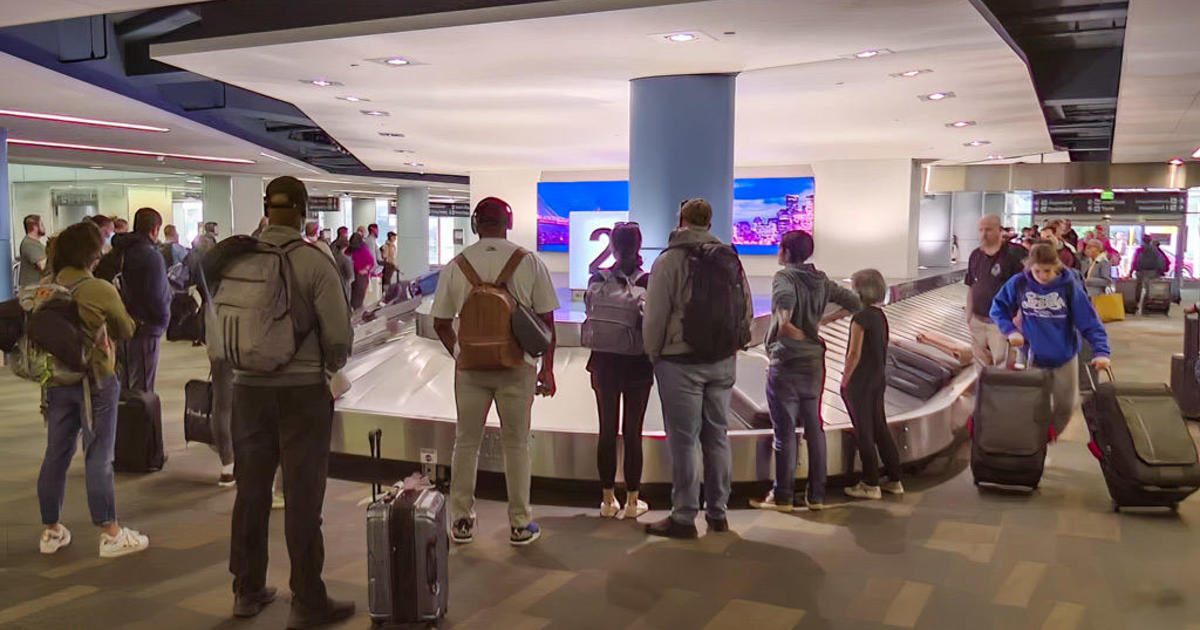Wind Turbines To Be Upgraded In Altamont Pass
LIVERMORE (AP) -- Thousands of decades-old wind turbines in Altamont Pass will be replaced with new ones that produce more power and kill fewer migratory birds under the terms of a legal settlement announced Monday.
California Attorney General Jerry Brown said he brokered an agreement between environmental groups, wind developer NextEra Energy Resources and the state after a long running legal battle.
"This landmark settlement mandates the replacement of outmoded wind turbines with newer models that are more efficient, generate more power and are less harmful to eagles, falcons and other birds," Brown said in a statement.
Under terms of the settlement, 2,400 turbines on the hills of the Altamont Pass operated by NextEra will be replaced in the next four years or shut down completely by Nov. 1, 2015.
There are a total of 5,400 turbines, some dating back to the early 1980s, in the 50-square-mile Altamont Pass Wind Resource Area, about 50 miles east of San Francisco.
The companies operating the remaining 3,000 turbines were not part of the settlement, but the attorney general's office plans to talk with other operators, said Christine Gasparac, a spokeswoman.
Altamont Pass is a breeding area for raptors and other species, and a major migratory route.
Studies have shown that the turbines kill between 1,700 and 4,700 birds each year — the most of any wind farm in the U.S. — including federally protected golden eagles and red-tailed hawks.
Wildlife advocates said the deal is a positive step, but that it covers less than half of the total number of turbines that need to be "repowered," or replaced by newer equipment.
"This is just one company, and the question is what are all the other energy companies doing and why is it taking so long ... when repowering is a clear way stop or reduce the bird kills?" said Jeff Miller of the Center for Biological Diversity.
The settlement is the latest development in a long-running dispute.
In 2005 Alameda County renewed permits for the turbines, but several Audubon Society chapters and environmental groups challenged the permit approvals under California's Environmental Quality Act.
The parties reached a deal in 2007 that was meant to reduce the bird deaths by half, but Brown said that settlement failed to stop the high number of bird deaths.
Steve Stengel, a spokesman for NextEra, said the newer, slower moving wind turbines are far less harmful to birds. And since each new turbine is more efficient, fewer of them will be needed to generate the same amount of power.
"These new turbines do not have lattice towers where birds can perch, which was a problem with the older models," Stengel said.
Years of studying the effects of the turbines at Altamont on local birds will also help the company choose better spots on which to build the new turbines, Stengel said.
As part of the legal agreement, NextEra also will pay $2.5 million to the state Energy Commission's Public Integrated Energy Research Program, the East Bay Regional Park District and the Livermore Area Regional Park District for raptor habitat creation.
The settlement now clears the way for NextEra to begin planning its new wind farm at the site, and begin securing deals with utilities, who are required under California's strict renewable energy goals to derive 33 percent of their power from clean sources by 2020.
"We see this as a win win," Stengel said. "We have to repower or shut down, and in our view this settlement clears the way for repowering."
(© 2010 The Associated Press. All rights reserved. This material may not be published, broadcast, rewritten or redistributed.)



